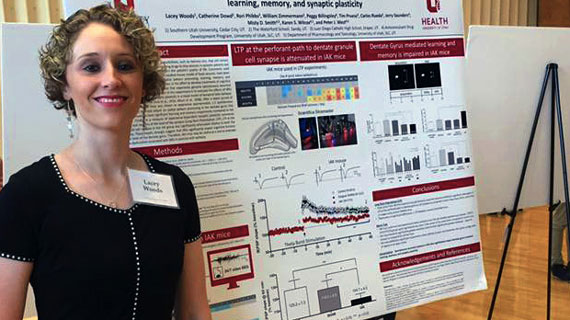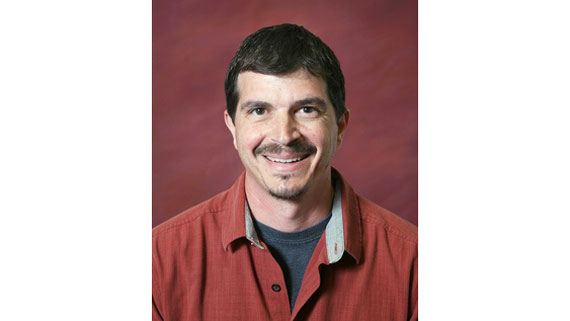Student Helps Researchers Look For Epilepsy Cure
Posted: January 08, 2018 | Author: Kaden Mcbride | Read Time: 3 minutes

Does the idea of working with medical professionals to develop cutting-edge medical treatments get your neurons firing? It does for Lacey Woods, a junior and biology major at Southern Utah University from Henderson, Nevada.
Woods didn’t always want to work in the field of medicine. When she arrived at SUU, she was focused on becoming a professional cellist. However, two years ago she discovered she had Fibromyalgia which ended that dream. During her search for answers, Woods found a budding passion for medicine by observing the compassionate service of her doctors.
This newfound fervor for medicine led Woods to pursue an internship at the University of Utah. There she was able to study the impact of spontaneous recurrent seizures on learning and long-term memory in mice in order to create more effective models to better evaluate treatments for epilepsy. In order to understand these effects, she studied laboratory mice that had different types of induced epilepsy and analyzed slices of their brains with tiny electrodes. Woods said the process was extremely complex and involved ten-hour days where absolute precision was required in order to gain the needed information for the study. The study suggested that mice who were treated with the new intra-amygdala kainate method of induced seizures provide more accurate models to evaluate novel treatments for epilepsy.
“The equipment and science behind it was incredibly difficult,” said Woods. “The most challenging aspect was continuing to press forward even when mistakes were made. I learned that failure and struggling through things and doing things incorrectly is actually the best learning tool.”
Woods said that SUU Professors Roger Gold and Nathan Werner both encouraged her to push herself to new heights as a student.
“Dr. Gold took the time to share his insights about how to study more efficiently,” said Woods. “Dr. Werner’s organic chemistry class was the most challenging class I have ever taken. I’ve retained more from these two professors than I ever have in any other class I’ve taken because they truly challenged me.”
“It seems that most students today want college courses to present a quick overview of topics they already know well,” said Gold. “Lacey Woods is different. Lacey asks good questions, deep questions, searching questions. Lacey is one of those students who inspires her teachers. She is an excellent student with rich potential and I feel fortunate to have been able to know and to work with her.”
Woods also praised the Rural Health Scholars program at SUU.
“I have enjoyed the rigorous science curriculum and the small classes at SUU that have allowed me to know the professors well,” said Woods. “In particular I love the Rural Health Scholars program. I’m grateful for their help and the opportunities for service I have received as a result of my membership in this program.”
Looking to the future, Woods said that her goal is to go to medical school in two years. She is considering pursuing an MD with a neurology, radiology or pathology specialty. She also is considering obtaining an MD/PhD.
“My dream has been to attend the University of Utah School of medicine so I can more fully understand not only the application but the research of how to promote the healing art of medicine,” said Woods. “My goal is to grow my understanding of how to plan and execute scientifically sound research projects so that I can become the best physician scientist possible.”
This article was published more than 3 years ago and might contain outdated information or broken links. As a result, its accuracy cannot be guaranteed.
Tags: Student Biology Rural Health Scholars



